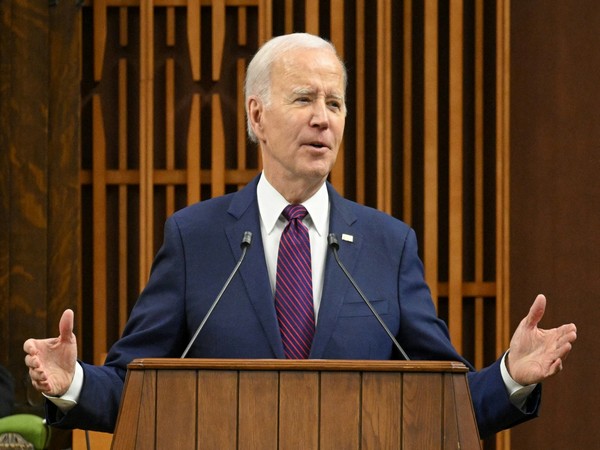Biden's $7.3 trillion budget is campaign pitch for spending, tax goals
Mar 12, 2024
Washington [US], March 12: U.S. President Joe Biden sketched his policy vision for a potential second four-year term on Monday, unveiling a $7.3 trillion election-year budget aimed at convincing sceptical Americans that he can run the economy better than Donald Trump.
Biden wants to raise taxes by trillions on corporations and high earners, his budget wish list showed, to help cut the deficit and pay for new programs assisting those who make less cope with high housing and childcare costs. Congress is unlikely to adopt the measures as proposed.
Biden's budget for the 2025 fiscal year, which starts this October, includes raising the corporate income tax rate to 28% from 21%, forcing those with wealth of $100 million to pay at least 25% of their income in taxes, and letting the government negotiate to bring more drug costs down.
Meanwhile, the government would bring back a child tax credit for low- and middle-income earners, fund childcare programs, funnel $258 billion to building homes, provide 12 weeks of paid family leave for workers, and spend billions on law enforcement.
"Do you really think the wealthy and big corporations need another $2 trillion tax breaks because that's what he (Trump) wants to do," Biden said of Trump at an event in the competitive election state of New Hampshire. "I'm going to keep fighting like hell to make it fair."
Republican House of Representatives Speaker Mike Johnson quickly rejected the proposal, saying it reflected an "insatiable appetite for reckless spending" and a "disregard for fiscal responsibility."
The budget was released days after the Democratic president's fiery State of the Union address, where he assailed the values of Trump, his expected Republican opponent in November's election.
Source: Fijian Broadcasting Cooperation








